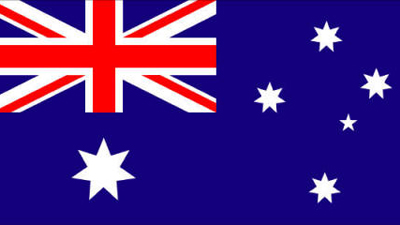Nickname: The Socceroos
FIFA Ranking: 62
World Cup history: Three World Cup appearances
The Socceroos, as Australia are known, returned to World Cup competition in 2006 after a 32-years’ absence, following the first taste of the tournament in 1974. Since then, they have consistently qualified for the subsequent World Cup tournament, making it through to the Round of 16 in 2006 and narrowly missing out in on goal difference in 2010.
For decades the Australian national team played in the Oceania Football Confederations which comprises New Zealand and other island nations like Tonga, Fiji and other Pacific Island. However, in 2005 the Australian Football Association decided the only way The Socceroos could improve on the international stage was to quit Oceania and join the Asian Football Confederations. A year later, in 2006, the move was approved and the decision seemed to pay off, with the Socceroos become even more competitive in international football, qualifying for the 2010 FIFA World Cup and the 2014 FIFA World Cup. They also qualified for the 2010 AFC Asian Cup, in which they reached the finals, but lost Japan.
En route to Brazil, Australia enjoyed some moderate form under the mentorship of Coach Holger Osieck. However, following some bad results, notably 6-0 defeats to France and Brazil in the international friendlies, Osieck was fired. He was replaced by Ange Postecoglo, who hit the ground running with a 1-0 victory against Costa Rica in his first match.
Tim Cahil, Mark Schwarzer and Harry Kewell are some of the experienced players Australia will be relying on in Brazil, where they are drawn in a tough group that includes favourites, Spain and Netherlands as well as Chile.
Key players: Tim Cahil, Mark Scharzer, Harry Kewell
He joined The Socceroos in 2013, following a string of poor results and has managed to instil stability and hope in a team that will compete in the World Cup
Know your coach: Ange Postecoglo
Ange Postecoglo is Australia’s most successful coach with a very impressive track record. As a player, the 48-year old Postecoglo played for South Melbourne and Western Suburbs in Australia. He also represented Australia at youth and senior national level.
As a coach, he had a very successful coaching his former club, South Melbourne, whom he led to successive league titles, Oceania Club Championship and participation in FIFA World Club competition.
Postecoglo also had a short coaching stint in his country of birth, Greece, where he was in charge of Panachaiki. He later returned to Australia to coach Melbourne Victory.
He joined The Socceroos in 2013, following a string of poor results and has managed to instil stability and hope in a team that will compete in the World Cup.
Country Profile:
Australia is the world’s sixth largest country in area. It occupies 7.6 million square kilometres. The country also has the third largest ocean territory of around 12 million square metres. The country is known for its Kangaroos, cricket, swimming, Sydney Harbour Bridge and the Bondi Beach. Australia has the largest Greek population in the world.
It is one of the most urbanised countries with more than 80% of the Australians living within 100 kilometres of the coast. Australia multicultural and there are over 200 languages spoken. Seventy per cent of the population participate in sport once a week however the country is one of the most obese with 26 % obesity rate as of 2012. More than 5 million people in the country are obese and 14 million are overweight.
Obesity has become the biggest threat in the Australian public life. It is predicted that if Australians gain weight at the levels they are currently going by 2025 almost 80 % of adults will be overweight or obese. The country is one of the fastest growing nations in the developed world. Australia has a wealth of mineral resources.
The country has the world’s largest economic resources of gold, iron ore, lead, rutile, nickel, uranium and zinc. Mining in the country remains the most important export earning sector.
• Full name: Commonwealth of Australia
• Population: 22.9 million (UN, 2012)
• Capital: Canberra
• Largest city: Sydney
• Area: 7.7 million sq km (2.9 million sq miles)
• Major language: English
• Major religion: Christianity
• Life expectancy: 80 years (men), 84 years (women) (UN)
• Monetary unit: 1 Australian dollar = 100 cents
• Main exports: Ores and metals; wool, food and live animals; fuels, transport machinery and equipment
• GNI per capita: US $49,790 (World Bank, 2011)
• Internet domain: .au
• International dialling code: +61
– By Sipho Kekana and Lerato Matlala


